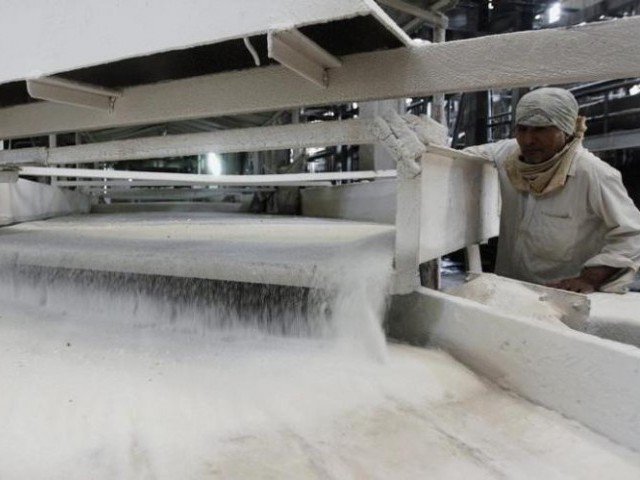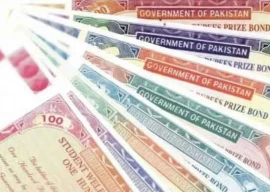
A special meeting of the Economic Coordination Committee (ECC) of the cabinet ended inconclusively owing to the stubborn stance of the millers who were reluctant to start crushing unless their demands were met.
Headed by Finance Minister Asad Umar, the ECC approved the provision of a $82.6-million grant for the Pakistan Poverty Alleviation Fund (PPAF) for further distribution to beneficiaries of the Benazir Income Support Programme.
Millers ask govt to remove conditions for sugar export
The ECC gave the go-ahead to the proposal of the Ministry of National Food Security and Research for the provision of 40,000 tons of wheat to Afghanistan as a gift.
Sugar dispute
Against the ECC’s directive to start the crushing season from November 15, the sugar mill owners have not yet started their boilers, which may create problems for the growers in cultivating the next crop which would be wheat.
The federal cabinet on Thursday directed the ECC to resolve the issue and later, the special meeting was called.
The demands of the millers included slashing the sugarcane support price and allowing them to export one million tons of sugar without any condition. No progress was made on both the issues during the ECC meeting, said an official of the Ministry of Industries.
Additional earnings: Sugar mills make extra profit by producing electricity
The millers were of the view that they would bear a loss of Rs15 per kg on the production of sugar due to the disparity between sugarcane and sugar prices. They said the high minimum sugarcane support price of Rs180 per 40 kg in place for the last four years had encouraged the growers to plant sugarcane over a larger area, which led to the production of bumper crops and surplus produce, leading to depressed local sugar prices.
The Pakistan Sugar Mills Association claimed that a daily loss of Rs6-25 million was being incurred depending on the capacity of the mill, with the larger ones losing hefty amounts.
We do not want the growers to suffer hence the millers should pay Rs180 per 40kg price to them, said Ministry of National Food Security and Research Secretary Dr Hashim Popalzai. He pointed out that according to the provincial laws, the cane crushing season must begin by November 30.
The Ministry of Industry was of the view that sugar barons were earning profits by installing additional plants for producing ethanol and electricity.
According to the ministry, sugar stock in the 2017-18 crushing season, which ran from October to September, stood at 7.158 million tons, of which 3.856 million tons were in Punjab, 2.281 million tons in Sindh, 0.470 million tons in Khyber-Pakhtunkhwa and the leftover was 0.541 million tons.
The ECC desired that the sugar mills owners repay first all the outstanding dues of the banks and the farmers for exporting the sugar.
Last month, it approved a proposal from the Commerce Division to export one million tons of surplus sugar. The proposal outlined that only those sugar mills will be allowed to export which have cleared arrears to farmers for all the crops up to 2017-18. Further, after November 15, 2018, the said clearance certificate shall also certify that concerned sugar mill has started crushing at full capacity.
The sugar mills that happen to be defaulters of banks would not be allowed to export sugar. The millers’ lobby demanded relaxation in this condition, according to the officials.
PPAF
The ECC approved a proposal to provide funds amounting to $82.6 million as grant to Pakistan Poverty Alleviation Fund (PPAF) for disbursement to 320,000 BISP beneficiaries, to drag them out of poverty.
The PPAF devised the “National Poverty Graduation Programme” (NPGP). The International Fund for Agricultural Development (IFAD) agreed to a loan amounting to $82.6 million to government of Pakistan for NPGP on concessional rates. A project financing agreement with IFAD in this regard was also signed. As per the agreement, the government shall make the loan proceeds available as grant of PPAF for poverty graduation of BISP beneficiaries.
However, the PPAF in the past faced registration problem with the Economic Affairs Division (EAD) related to qualifying for foreign funds. The PPAF applied for the EAD registration to avail the $82.6-million loan. “Foreign funds for all current projects submitted by the PPAF for the purpose of registration with the EAD have not been approved,” said the EAD’s March 2018 intimation to the PPAF.
There has been allegation on the last government for providing grant to BISP beneficiaries by taking foreign loans instead of granting the entire amount from the budget. The PPAF’s involvement in the exercise would significantly increase the cost of the graduation programme that the BISP administration can do without the involvement of any other party.
Published in The Express Tribune, December 1st, 2018.
Like Business on Facebook, follow @TribuneBiz on Twitter to stay informed and join in the conversation.









1732486769-0/image-(8)1732486769-0-270x192.webp)







COMMENTS (1)
Comments are moderated and generally will be posted if they are on-topic and not abusive.
For more information, please see our Comments FAQ